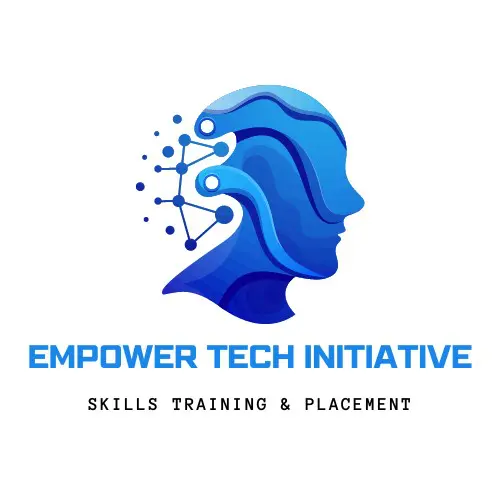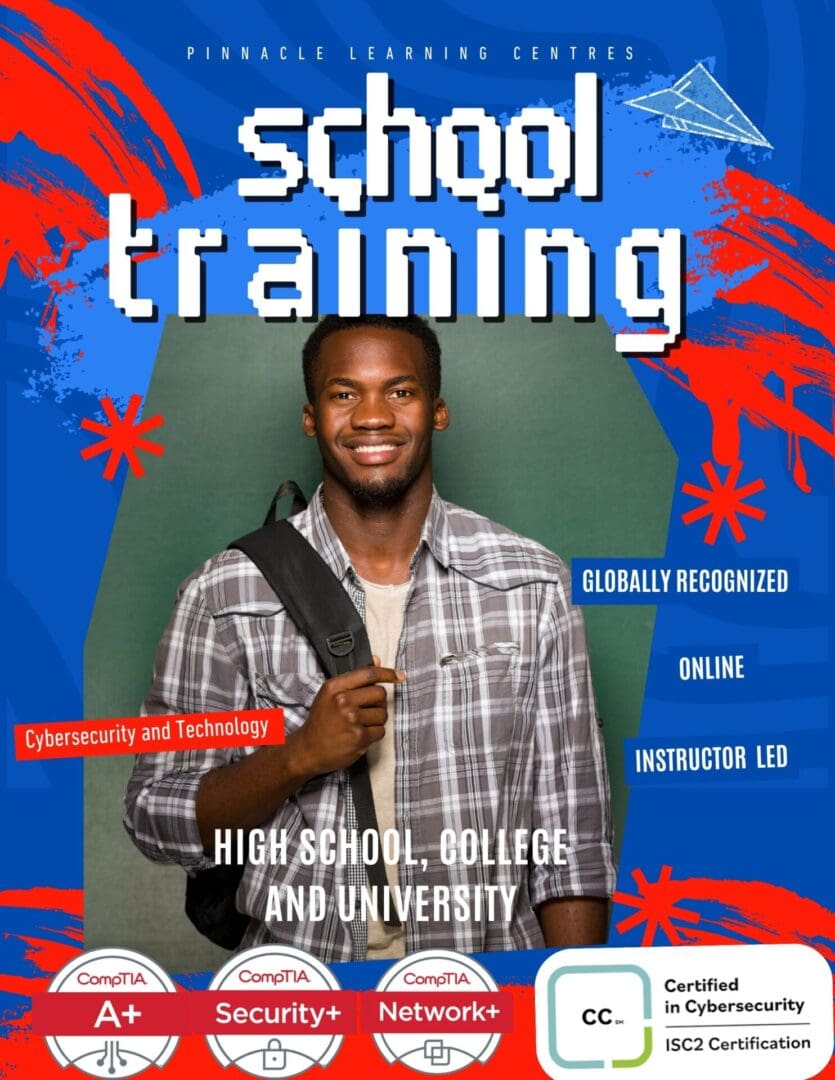
Empower Tech Initiative (ETI)
In the digital age, technology has emerged as a prominent and influential sector, shaping the economy, influencing societal norms, and determining global progress. However, a vast portion of society, particularly minorities, immigrants, and the disenfranchised, find themselves on the periphery, either due to lack of access, resources, or awareness. The Empower Tech Initiative aims to bridge this gap by offering tuition-free training in Information Technology (IT) and cybersecurity to these underserved communities.
Globally, there's an increasing demand for skilled IT and cybersecurity professionals. Yet, minorities, immigrants, and disenfranchised individuals often lack the avenues to venture into these fields. Barriers such as high tuition fees, cultural stigma, and lack of access to quality education have resulted in a stark underrepresentation of these groups in tech sectors.

high schools, colleges and universities
1. Introduction
In today’s rapidly evolving digital landscape, the need for robust technology and cybersecurity education has never been more crucial. Educational institutions play a pivotal role in shaping the next generation of IT professionals, and we are pleased to propose a partnership that will provide high schools, colleges, and universities with access to industry-leading technology and cybersecurity training. This initiative will include comprehensive courses from both ISC2 and CompTIA, designed to equip students with the skills necessary to thrive in the ever-demanding IT and cybersecurity fields.
2. Proposed Training Program
Through our partnership, we provide tools and resources to help schools deploy turnkey curriculum including fundamental digital skills, IT and Cybersecurity training. Partners leverage our learning resources, e-Learning courseware and hands-on labs. We propose to offer a suite of technology and cybersecurity courses tailored to the educational needs of high schools, colleges, and universities. The program will include:
o ISC2 Certification Courses:
§ Certified Information Systems Security Professional (CISSP)
§ Certified Cloud Security Professional (CCSP)
§ Systems Security Certified Practitioner (SSCP)
o CompTIA Certification Courses:
§ CompTIA IT Fundamentals (ITF+)
§ CompTIA A+
§ CompTIA Network+
§ CompTIA Security+
3. Who May Join?
a. Secondary Schools (including career, vocational or technical centers)
b. Colleges and Universities (traditional degree granting community and technical colleges and universities)
c. Government Funded Educational Agencies
d. Not For Profit Educational Institutions that provide technology instruction.
e. Correctional Facilities
4. Key Features of the Program
a. Instructor-Led Training: All courses will be delivered by certified instructors with industry experience, ensuring that students receive the highest quality, practical, and hands-on training. Our instructors will guide students through the complexities of each certification, making the learning process engaging and effective.
b. Lower Certification Costs: As part of this partnership, we will offer certifications at a significantly reduced cost. This initiative will lower financial barriers, making it easier for students to obtain globally recognized certifications and improve their employability.
c. Mentoring for Job Placements: In addition to certification training, we will provide mentorship and career guidance to students. Our network of industry professionals will offer insights, interview preparation, and connections to job opportunities, helping students transition seamlessly from education to employment.
d. Discounted Pricing: Your organization and students receive preferred pricing on all CompTIA learning resources and exam vouchers.
e. Certification Exam Objectives aligned with skills and competencies required by employers: Exam objectives are mapped to skills and competencies for IT and Cybersecurity job roles. This alignment helps institutions develop curriculum and build lesson plans.
f. Official Learning Materials: Official CompTIA learning resources are the only study material exclusively developed by CompTIA for the CompTIA certification candidate; the content library includes training to support all CompTIA certification exams. CompTIA employs trusted third party subject matter experts to review and validate that the content meets exam objectives as required.
g. Certification Verification Tool: Use exam voucher numbers to track your students’ testing results.
5. Benefits to Your Institution
a. Enhanced Curriculum: Integrating these industry-standard courses will enhance your institution's curriculum, making it more relevant to current industry needs and trends.
b. Increased Student Enrollment and Retention: Offering sought-after certifications and job placement support can attract more students to your programs, increasing enrollment and retention rates.
c. Strengthened Industry Connections: Partnering with us provides your institution with direct connections to the IT and Cybersecurity industry, benefiting both your faculty and students.
d. Long-Term Impact: By equipping students with essential skills and certifications, your institution will contribute to building a stronger, more secure digital infrastructure, fostering long-term economic growth in the region.
e. Mentorship: Engagement of industry professionals to guide participants, offering real-world insights and networking opportunities.
f. Post-Training Support: Assisting in job placements, internships, and continuous learning opportunities.
Objectives
Inclusivity in Tech
To enhance diversity in the IT and cybersecurity sectors by providing accessible training opportunities.
Skill Development
To equip participants with industry-relevant skills that lead to meaningful employment.
Community Building
To foster a supportive community where alumni can mentor new participants, ensuring sustained growth and learning.
Duration
The training program spans 8 weeks and consists of intensive modules in IT fundamentals, programming, network management, and cybersecurity essentials.
Eligibility
Minorities, immigrants, and disenfranchised individuals aged 18 and above with a high school diploma or equivalent. Preference is given to those with a demonstrated financial need.
Facilities
State-of-the-art labs, online access to resources, mentorship opportunities, and career counseling.
Certification
Upon successful completion, participants receive a certification, recognized by leading tech firms, enhancing their employability.
Cohort
The program will be conducted in groups of 15 over an 8-week period and will attempt to target 150 students per year graduating with a Certificate in Cybersecurity.
Official training provides

scholarship Eligibility Requirements
Christopher Nelson Executive Director MBA, CISSP, ITIL, PMP, CSPO
Christopher Nelson is the founder and CEO, responsible for managing all day-to-day activities of the ETI, including coordinating the work of the teachers and coordinators. He is a cybersecurity professional, renowned author, and global educator. With over fifteen years of specialized experience in the cybersecurity industry, he has developed a reputation for his relentless pursuit of technological advancement, the protection of confidential information, and the advancement of cybersecurity literacy on a global scale.
His expertise and dedication have seen him become an influential voice in the industry, leading him to author numerous highly regarded books. These include “Artificial Intelligence, Cybersecurity and You,” "First Line of Defense: The Beginners Book of Cybersecurity," and "Ethics in the Workplace: Special Cybersecurity Edition”.
In 2018, recognizing a need for better cybersecurity education, Christopher founded Cybersecurity for Everyone (CFE), an organization dedicated to raising cybersecurity awareness and providing education around the world. Through his work with CFE, he has delivered lectures and workshops globally, providing key cybersecurity training to corporations and individuals alike.
- Age Requirement:
Applicants must be 18 years of age or older at the time of application submission.
- Educational Background:
Possession of a high school diploma or its equivalent (e.g., GED, TASC, HiSET). Proof can be in the form of a transcript, a copy of the diploma, or equivalent certification.
- Ethnic and Social Status:
- Minorities: Individuals who belong to racial, ethnic, or religious groups that are underrepresented in the IT and cybersecurity sectors.
- Proof might be required through self-declaration, government census data, or community attestations.
- Immigrants: Non-native individuals who have moved to the country for reasons of work, study, or refuge.
- Applicants might need to present residency papers, immigrant status documentation, or other pertinent legal paperwork.
- Disenfranchised Individuals: Those who have been deprived of rights or privileges, especially the right to vote, or those marginalized from mainstream society.
- This can be more subjective, so self-declaration, letters of recommendation, or community attestations can be useful.
- Financial Need: Preference will be given to applicants demonstrating significant financial need.
This can be ascertained through:
- Income Statements: Recent tax returns or wage statements can serve as proof of household income.
- Unemployment Verification: For those currently unemployed.
- Scholarship or Financial Aid History: Previous acceptance of financial aid, scholarships, or grants based on need can indicate financial hardship.
- Personal Statement: A written statement detailing financial struggles, challenges faced, and reasons for seeking financial preference.
- Recommendations: Letters from community leaders, teachers, or social workers vouching for the financial condition of the applicant.
- Additional Considerations (if applicable):
- Language Proficiency: If the course is being conducted in a language other than the applicant's native language, proof of proficiency might be required, such as TOEFL or IELTS scores for English.
- Passion for Technology: Though not a strict requirement, a brief personal statement or essay on why the applicant is interested in IT and cybersecurity can be beneficial. This demonstrates dedication and a genuine interest in the field.
- Prior Experience: Any previous courses, workshops, or informal experiences related to IT can be a plus, but they are not mandatory. This is to ensure those with a foundational interest or slight experience are not discouraged from applying.
- Background Check (if necessary):
- Given that cybersecurity can involve handling sensitive information, some programs might require a basic background check to ensure the safety and integrity of the training environment.
